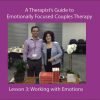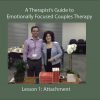4 Destructive Habits
to Avoid in Your Relationship:
Couples researcher and therapist John Gottman has studied the characteristics of couples who are in successful relationships, and also couples who are in relationships that ultimately fail. What he has found is that couples who end up separating or divorcing, engage much more often in 1 of 4 destructive habits that undermine love and affection over time.
Couples who have more loving and lasting relationships also engage in these habits, but much less often. They are also much better able to engage in what Gottman calls antidote behaviors, which counteract the impact of the 4 destructive habits.
So what are these habits that couples need to learn to decrease if they want to stand a chance to make their love last?
Let's go through them one at a time, and see what their anti-dote is...
1. Criticism:
Hidden behind each criticism often lies an unexpressed longing. Couples who know this and feel comfortable acknowledging this to themselves and to their partner, have a much better chance at making their relationship work over time.
Couples who are not as comfortable expressing their softer needs and feelings, often end up talking more about what their partner isn't doing right, than confessing what they really need and wish for.
When longings for closeness make people feel weak or vulnerable, they often turn their own sadness and anxiety into angry complaints. They get more irritable and start to find fault with many little things in their relationship. They complain about their partner not helping out, not being considerate enough, or being more interested in watching TV than in talking.
In spite of their hope that the complaint will lead to changes and will ultimately bring them what they need, it often has the opposite effect.
The person who feels criticized often ends up feeling that they can never get it right. This generally tends to make them less impassioned about spending time with the other person and oftentimes makes them not share their thoughts and feelings as readily, because they don't feel as accepted.
This is why successful couples don't just complain or point out flaws in the other person, but learn how to let the other person in on their longings for closeness or their fears that maybe their partner is losing interest. These kinds of candid and vulnerable disclosures naturally pull for closeness and empathy, whereas complaints pulls for protective distance.
2. Defensiveness:
When you feel attacked and criticized, you defend. This is especially true if you feel wrongly accused or judged. In such situations, you have the need to either attack back or to put up a protective wall to protect your own feelings and self-esteem.
Being defensive means not trusting that you partner is coming from a positive, kind, and helpful position. When we don't see or feel the loving concern in our partner, we generally stop listening to what they are saying, and simply focus on defending our honor or avoiding negative consequences.
Couples who ultimately end up separating or divorcing tend to engage in patterns of attack-defend rather than having conversations where the goal is to try to see things from each person's perspective. Over time, this kind of pattern leads to isolation from each other and a tendency to not really share real thoughts and feelings since it simply isn't safe to do so.
More successful couples learn how to stop this attack-defend cycle by quickly realizing when they get stuck in it. They develop an ability to reflect on their interactions and to deescalate a situation before a fight happens. They acknowledge when they feel defensive and are able to communicate their sense of rejection rather than shut down or hurt the person they love.
They realize that their partner may sound critical and disapproving, but that their partner is ultimately sad, lonely, or scared underneath their angry attacks. In this way they can quickly turn a fight into a two-way conversation, and acknowledge the more vulnerable feelings that were missing from the first interaction.
3. Contempt:
John Gottman finds the behavior that is most predictive of separation and divorce to be the expression of contempt. Contempt is any action, facial expression, or comment that springs from the sense that the other person is beneath you, unworthy of recognition, and an object to be discarded. Contempt often gets expressed in the midst of an intense argument in a last ditch effort to win, but it can also become a rather chronic attitude that defends against deeply held resentment of not feeling valued or good enough in the eyes of one's partner. Contempt, in other words, tends to breed contempt, and if it is not curtailed, it can lead to mutual rejection and resentment over time.
Successful couples try at all cost to not give low blows or not attack the character or personality of the person they love. They understand how to discuss issues and differences of needs and opinions without invalidating the other's point of view, or turning a difference of opinion into a character flaw of the other person. They avoid escalating fights to the point of name-calling, and are careful not to judge the other person as "selfish", "stupid", or "crazy", which is an attack on a person's character.
Successful couples also cultivate a positive relationship and friendship with their partner, so that they can stay reminded of how much they value and regard the other person's role in their life. Because they have deposited love and positive feelings into each other's "bank accounts", they are better able to see their partner's good intentions, and not lose total sight of the goodness of the other person, even when they get angry.
4. Stonewalling:
Stonewalling is the last of John Gottman's 4 habits that have destructive impacts on a relationship. Stonewalling is a word used to describe the tendency by some partners to cut off contact by shutting down emotionally, shutting the other person out, or leaving a situation without any conversation about when they will be back.
Opposite what many partners who engage in stonewalling think, leaving a conversation or becoming cold or indifferent, is incredibly painful to the other person. It often imposes on the other person a sense of involuntary solitary confinement. Being stonewalled deprives the other person of knowledge about the state of their connection with the stonewaller. The person who has been shut out is left to wonder if their partner will become "good" again, and sometimes they stay in an anxiety about not knowing if their relationship will return to normal.
Oftentimes this makes the shut out partner worry about whether or not they will be abandoned, and they may actually feel the absence of the other's engagement with them as a sense of abandonment pain.
Successful couples realize that stonewalling is an angry and hurtful response that causes damage and pain to the person they love. Although they may temporarily shut down emotionally or leave a conversation out of anger, they develop a habit of reassuring their partner that they just need a little space to think and indicate when they will be back to finish the discussion. They don't use stonewalling as a form of punishment, but reflect on what emotions they are really feeling underneath their anger. They also learn how to calm themselves down to a point where they can communicate their feelings once again while staying connected with their partner.
How to Develop the habits of
Successful Couples?
You now know the 4 destructive habits John Gottman discovered in his research to undermine love and connection over time. If you want your relationship to remain strong and healthy it will be important for you to learn to stop these destructive habits or minimize their impact.
If you would like to read more about the 4 destructive habits of criticism, defensiveness, contempt, and stonewalling, and learn more about their anti-dote behaviors, I recommend that you check out John Gottman's book:
The Seven Principles for Making Marriage Work
































